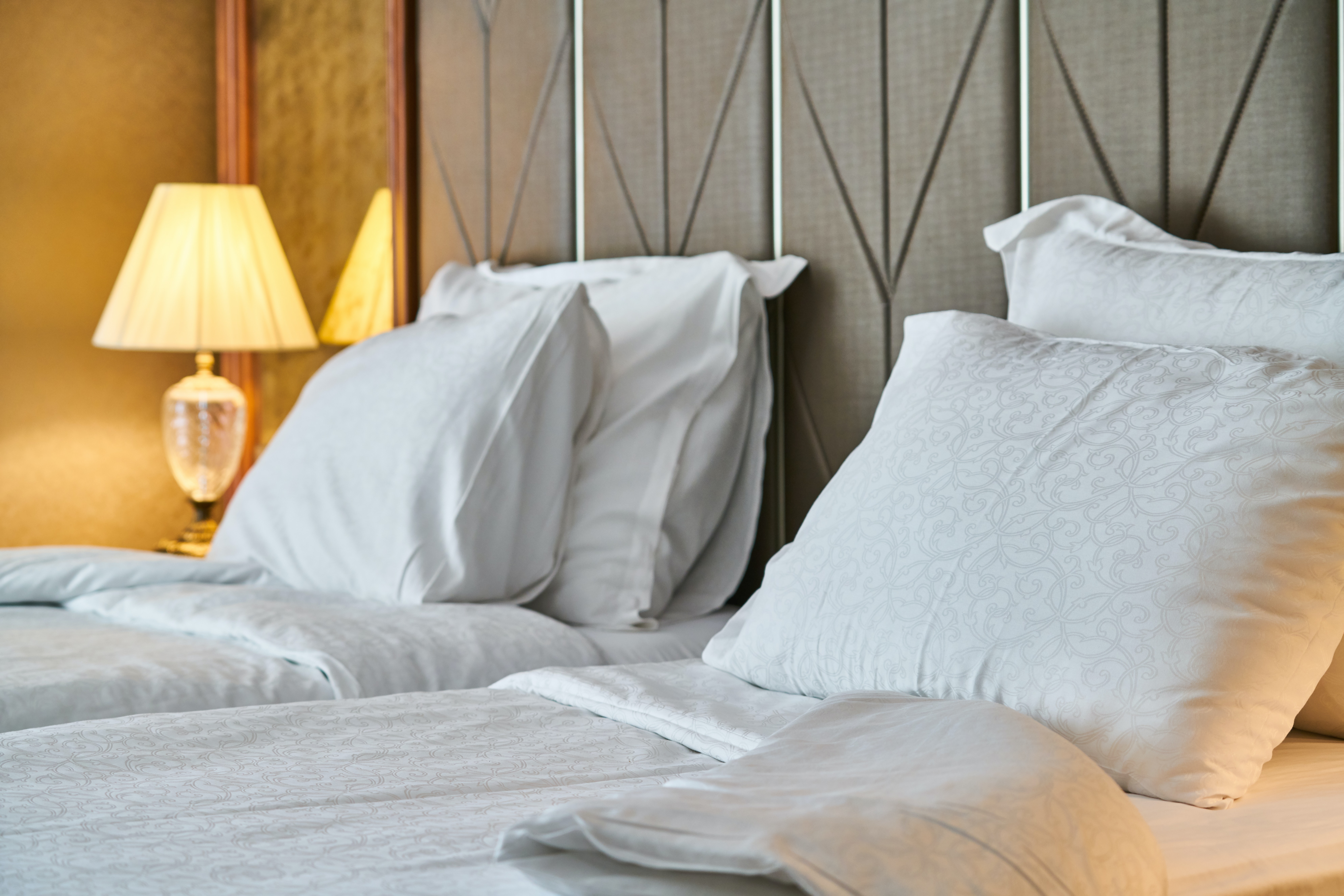Health and Safety Risks Associated with Poor Indoor Air Quality and Inadequate air filtration in Hotels
Canadians are traveling more than ever these days due to the fact that in recent times travel was restricted and less accessible. If outstanding hotel cleanliness was a selling point for guests before, it most definitely is more so now. But is the indoor air quality (IAQ) in your hotel at a safe level? Despite the joint statement from the Hotel Association of Canada and the American Hotel and Lodging Association regarding new health and safety procedures, another factor has largely been overlooked in the strategy to control the spread of viruses and to ensure a comfortable environment: superior indoor air quality.
Guest rooms and common spaces within most hotels have dated air filtration systems that circulate the same air in and out of the room without removing pollutants, including aerosol particles containing viruses. Repeatedly recirculating infected aerosols and other pollutants increases the likelihood that an unsuspecting guest will inhale them and become infected themselves.
Air Pollution and Connected Health Risks in Hotels
Not only does poor air ventilation and lack of quality air filtration increase the risk of virus infection, it also worsens guests’ exposure to outdoor air pollution infiltrating the building. Outdoor air pollutants are mainly emitted by vehicles, airports, power plants, and other industrial processes, and include both gases and particulate matter, such as PM1 and PM5. Hotels located in poorly designed urban areas are also prone to exacerbated air pollution concentration, as wind can be blocked and air dispersion is reduced. The inhalation of these emissions can be detrimental, as fine particulates can deeply penetrate lung cells and induce lung irritation or illness.
Inhalation of pollution particulates that are generated from within hotels are also a cause for concern. These pollutants may include dust on hotel furniture; various concentrations of volatile organic compounds (VOCs) from solvents and sealants, fragrant decorations, and cooking fumes in kitchens; and even biological pollutants from people. According to the Environmental Protection Agency (EPA), the presence of these indoor pollutants causes health problems such as respiratory diseases, heart disease and cancer.
Top Tips for Canadians to Reduce Pollution-Related Health Risks During Travel
To help assure Canadians have a hotel experience that counteracts health risks and reduces exposure to sickness, Camfil Canada recommends that guests:
- disinfect common touch surfaces such as door handles and faucets, even if hotel staff is performing this service
- avoid closed spaces and crowded areas
- practice good hand hygiene
- ensure there is adequate ventilation or supplemental air purification units throughout the hotel before arriving
- if the outdoor air is not heavily polluted in the destination you are traveling to, spend more time outdoors and limit time indoors where many people congregate
Advantages of Proper Air Filtration in Hotels
While sanitizing and disinfecting procedures remove contaminants on surfaces, they have no effect on harmful particulates lingering in the air. Moreover, some masks only provide limited protection as they are not effective against fine pollution particles ranging from 0.3-10 microns.
Several hotels are beginning to do their part in improving indoor air quality (IAQ) and eliminating virus and air pollution particles before they can be inhaled. For instance, the MGM Resort chain in the U.S. is upgrading ventilation and even adding air purification units to guest rooms.
For other hotels wanting to take the lead in delivering superior air quality and instill confidence in their guests, Camfil Canada recommends that they apply high efficiency particulate air (HEPA) filters. These filters are optimal in virus removal as they are able to capture at least 99.97% of .3 micron particles.
For hotels wanting to go the extra mile, they can also upgrade their ventilation systems. If air handling units (AHU) cannot support HEPA filters, air filters with at least a MERV 14/14A rating are also effective in protecting people. The City-Flo is a bag filter, ideal for upgrading existing installations and is uniquely designed to remove both gases and particulate matter. The Durafil ES2, a compact filter, is another option that has a low Life-Cycle Cost (LCC).
There are a variety of factors that determine which air filtration solutions will best protect your hotel. Be sure to contact an experienced commercial building air filtration consultant to find the air filtration solutions that are right for your building.
About Camfil Canada Clean Air Solutions
For more than sixty years, Camfil has been helping people breathe cleaner air. As a leading manufacturer of premium clean air solutions, we provide commercial and industrial systems for air filtration and air pollution control that improve worker and equipment productivity, minimize energy use, and benefit human health and the environment. We firmly believe that the best solutions for our customers are the best solutions for our planet, too. That’s why every step of the way – from design to delivery and across the product life cycle – we consider the impact of what we do on people and on the world around us. Through a fresh approach to problem-solving, innovative design, precise process control, and a strong customer focus we aim to conserve more, use less and find better ways – so we can all breathe easier.
The Camfil Group is headquartered in Stockholm, Sweden, and has 33 manufacturing sites, six R&D centers, local sales offices in 30 countries, and about 4,800 employees and growing. We proudly serve and support customers in a wide variety of industries and in communities across the world. To discover how Camfil Canada can help you to protect people, processes and the environment, visit us at www.camfil.com/en-ca/.
##
Media Contact:
Phillip Ilijevski
Camfil Canada Inc.
T: 437-929-1161
F: Follow Camfil Canada on Facebook
T: Follow Camfil Canada on Twitter
L: Follow Camfil Canada on LinkedIn
Resources:
https://www.statista.com/statistics/1122846/coronavirus-hotel-sector-kpi-canada/
https://www.cbc.ca/news/health/travel-hotels-covid-questions-answered-1.5600101
https://www.theatlantic.com/health/archive/2020/06/is-air-conditioning-safe-pandemic/613438/
https://www.frontiersin.org/articles/10.3389/fenvs.2014.00069/full
https://www.epa.gov/report-environment/indoor-air-quality
https://www.iqair.com/us/blog/air-quality/air-pollution-masks-what-works-what-doesn-t
https://toronto.citynews.ca/2021/07/08/do-i-need-to-take-precautions-at-hotels-if-im-vaccinated/

